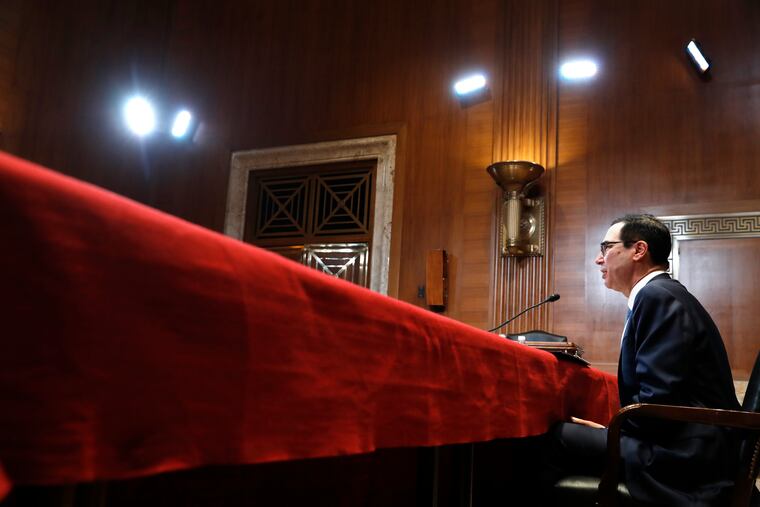Don’t raise the debt ceiling, abolish it | Opinion
Congress is once again facing a looming crisis over the debt ceiling, as it did two years ago, and six years ago, and eight years ago, and ... you get the idea.

Congress is once again facing a looming crisis over the debt ceiling, as it did two years ago, and six years ago, and eight years ago, and ... you get the idea. Instead of staging these tedious fights every few years, Congress has a far better option for dealing with the debt ceiling: eliminate it altogether.
This largely symbolic act to raise the debt limit is supposed to goad both parties to get serious about reining in the national debt. It hasn't worked out that way. These repeated showdowns only create uncertainty that will ultimately make the debt larger and less sustainable.
This ritual takes place because in 1917 Congress passed the Second Liberty Bond Act, which authorized the Treasury Department to sell whatever bonds it needed to finance World War I providing that the total did not exceed $5 billion. Congress wanted to give the Treasury a free hand to conduct the war, but did not want to relinquish its power of the purse.
All debt issuance since has happened under the authority of that law. For more than half a century, the law more or less served its intended purpose of forcing Congress to exercise spending oversight.
Then, in 1974, Congress passed the Budget Control and Impoundment Act, which created the modern budget resolution process. President Richard Nixon had tried to reduce the size of government by simply not spending all the money Congress had appropriated. Under this law, Congress provides a detailed accounting of appropriations that the president cannot alter. The law also gives Congress the opportunity to shut down the government if a compromise on fiscal policy cannot be reached.
The reconciliation process thus makes the purpose of the debt-ceiling vote - a way for Congress to exercise control over the federal budget - redundant. Not only that, but failing to raise the debt limit is far more dangerous than shutting down the government. Without the ability to issue new debt, the Treasury would not have the ability to pay off old debt as it matures. One option it would have is to temporarily default on its old debt, thereby reducing the nation's overall debt and giving it some room under the limit to issue new debt. It would then use that new debt to repay the old.
That might not sound so bad. But financial institutions around the world depend on income from Treasury bonds to balance their books at the end of every day. The mere possibility of a temporary default can send financial markets tumbling - and, ironically, worsen the deficit.
This happens for two reasons. First, the financial turmoil encourages businesses to delay investment, which in turn slows growth. That reduces tax revenue. Second, the threat of a U.S. default, even a temporary one, may cause some major financial institutions to sell U.S. bonds, which causes the interest rate the U.S. government pays to rise. Fewer revenues and higher interest payments lead to a higher deficit.
And for a true nightmare scenario, consider this: What if, in a fit of insanity, Congress simply refused to raise the debt ceiling for months on end? Then the same crisis that engulfed Greece at the start of the decade could take down the U.S. That possibility, even if extremely remote, adds uncertainty to the Treasury bond market and makes it slightly less stable.
If the debt ceiling were the only way for Congress to conduct budgetary oversight, then perhaps these risks would be worth it. But it isn't and they're not. The budget resolution process can be used with far less disastrous consequences. That means there is simply no point to the debt ceiling at all. Instead of raising it, Congress should abolish it.
Karl W. Smith is a former assistant professor of economics at the University of North Carolina’s school of government and founder of the blog Modeled Behavior.